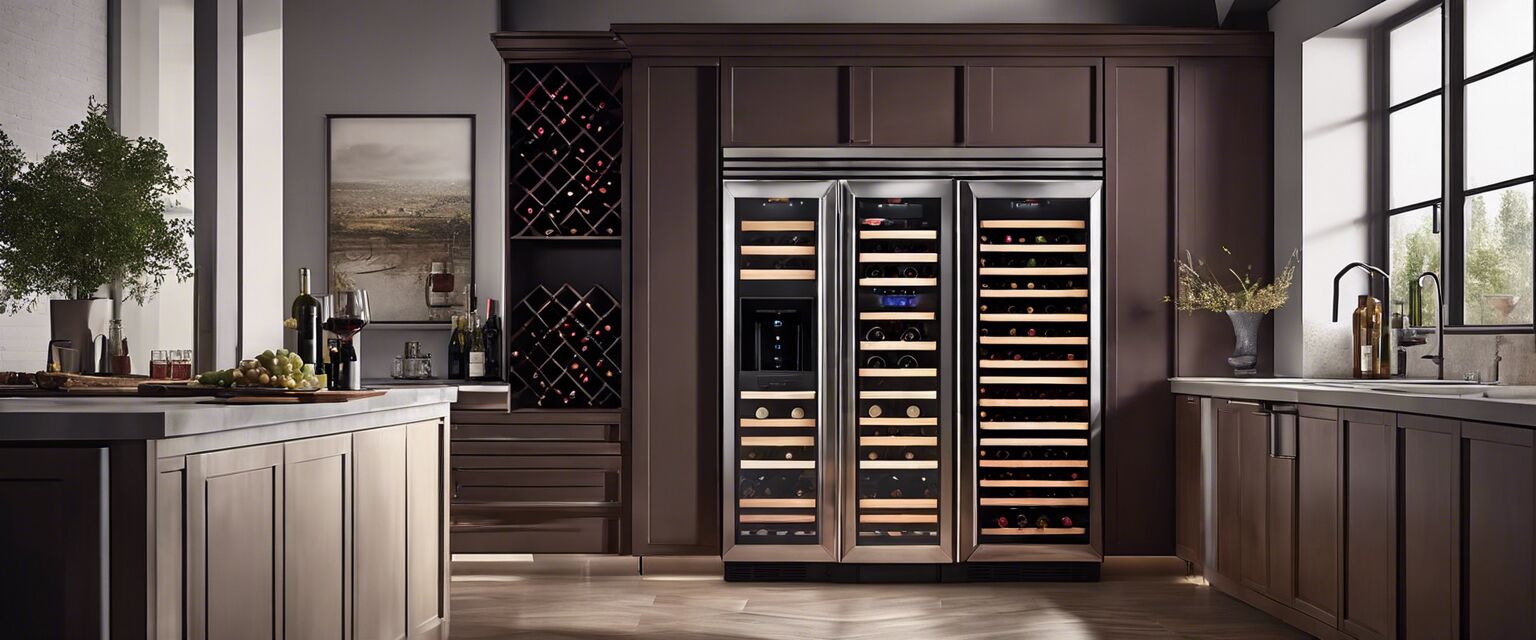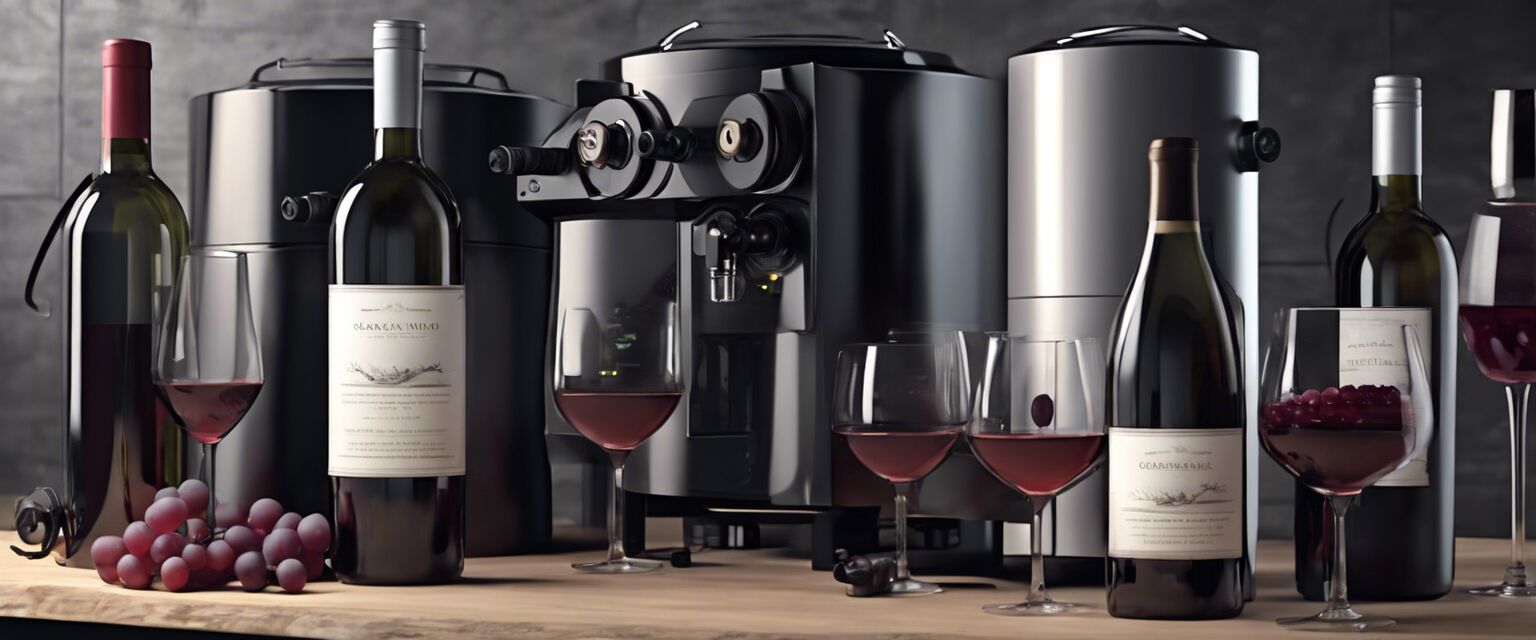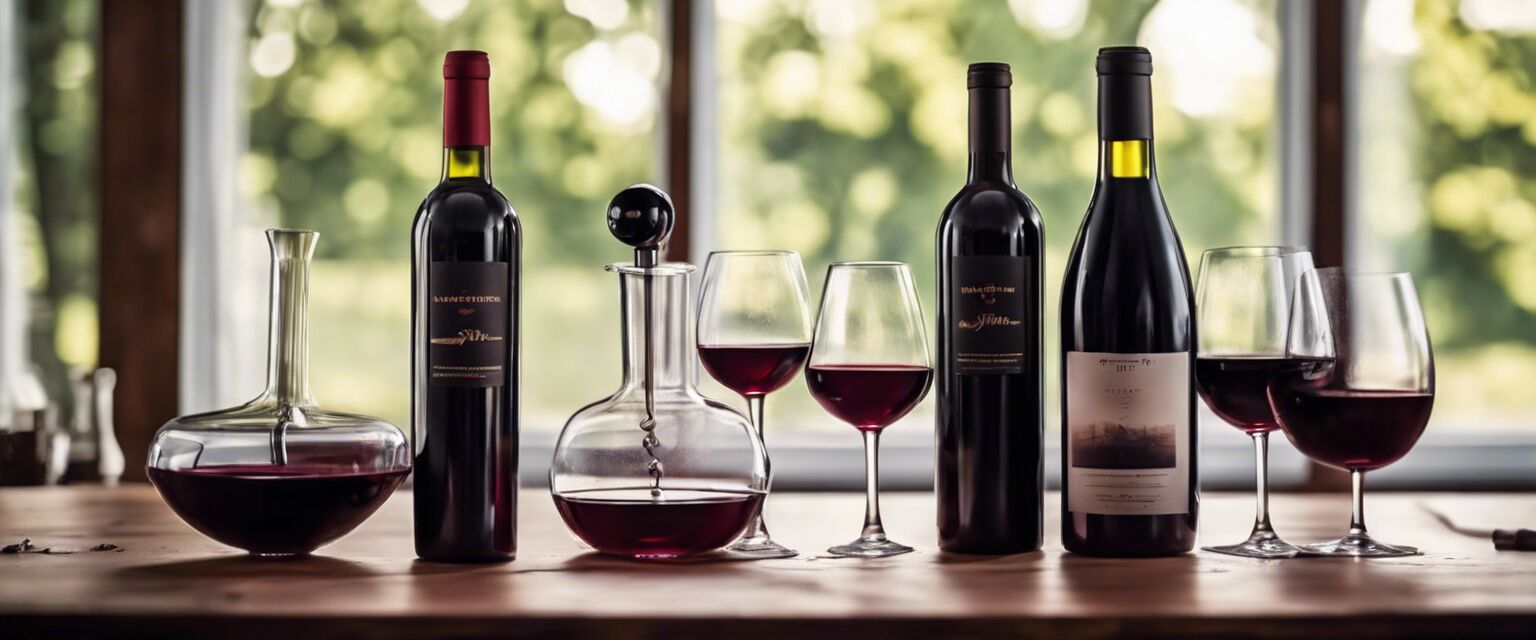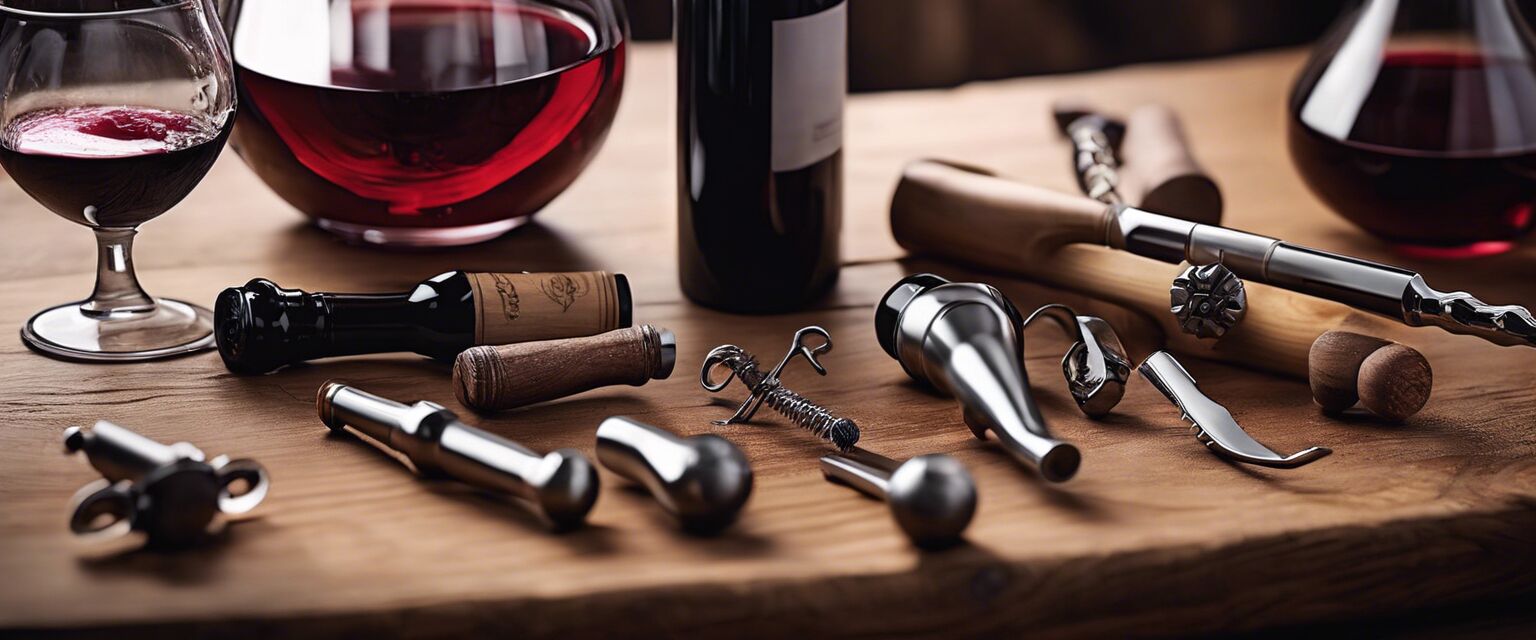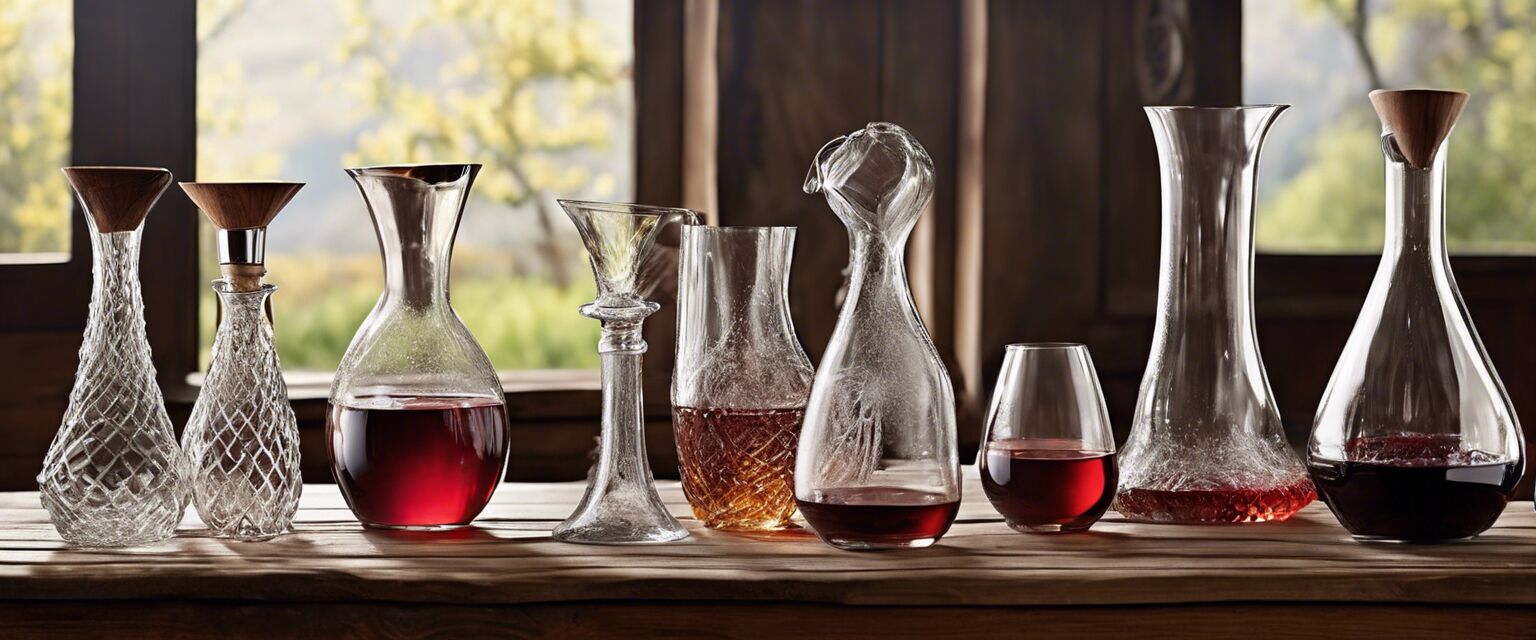
Wine Decanters: A Detailed Guide to Their Benefits
Key Takeaways
- Wine decanters enhance the flavor and aroma of wine.
- They are available in various shapes and sizes for different types of wine.
- Proper cleaning and maintenance are essential for longevity.
- Decanting times vary based on the wine's age and type.
Wine decanters are not just elegant serving pieces; they play a vital role in improving the overall experience of wine drinking. This guide will explore the types of wine decanters, their benefits, and how to choose the right one for your needs.
What is a wine decanter?
A wine decanter is a vessel used to hold wine, typically made of glass or crystal, designed to aerate the wine and separate it from sediment.
Why use a wine decanter?
The primary purpose of a wine decanter is to enhance the wine's flavor and aroma through aeration. Additionally, it serves as an attractive way to present wine at your table.
Benefits of using a wine decanter
| Benefit | Description |
|---|---|
| Aeration | Helps to release the wine's bouquet by exposing it to air. |
| Separation of sediment | Allows for the removal of sediment that can settle in older wines. |
| Presentation | Enhances the aesthetic appeal when serving wine. |
| Temperature Control | Some decanters can help maintain the ideal serving temperature. |
Types of wine decanters
There are various types of wine decanters, each designed for specific purposes:
- Standard Decanters: These are versatile and suitable for most wines.
- Wide Base Decanters: Ideal for red wines as they allow more surface area for aeration.
- Single Pour Decanters: Designed for easy pouring with minimal splashes.
- Vintage Decanters: Used for older wines to gently pour without disturbing sediment.
How to decant wine
Decanting wine can be a simple process. Hereâs how to do it:
- Choose a decanter based on the wine type.
- Open the wine bottle and let it breathe for a few minutes.
- Pour the wine slowly into the decanter, keeping the bottle upright to avoid sediment.
- Allow the wine to aerate for a suitable time before serving.
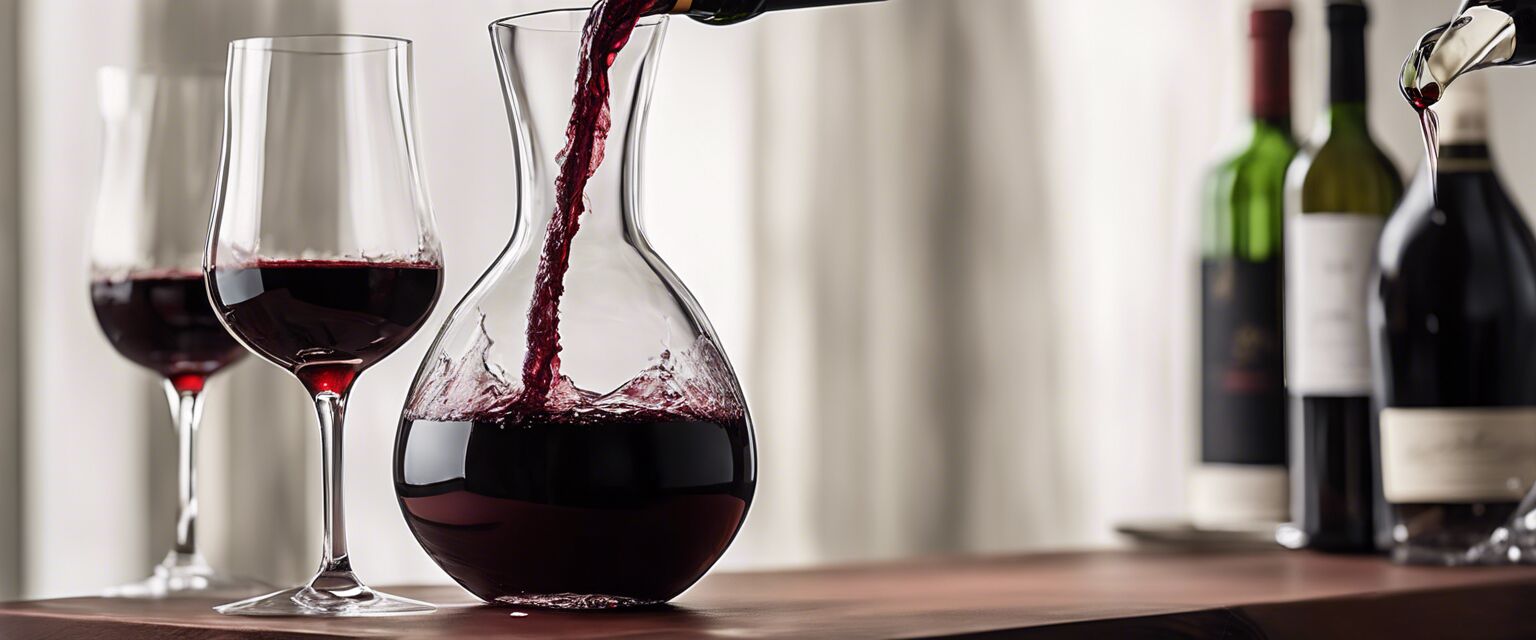
Decanting times for different wines
| Wine Type | Recommended Decanting Time |
|---|---|
| Young Red Wines | 30 minutes to 1 hour |
| Old Red Wines | 15 to 30 minutes |
| White Wines | 10 to 20 minutes |
| Rosé Wines | 5 to 10 minutes |
Cleaning and maintaining your wine decanter
Proper care ensures that your decanter lasts and maintains clarity. Here are some tips:
Tips for beginners
- Rinse the decanter with warm water immediately after use.
- Use a soft cloth to avoid scratches.
- Consider using a decanter cleaning ball for hard-to-reach spots.
- Avoid using soap, as it may leave a residue.
Choosing the right wine decanter
When selecting a wine decanter, consider the following:
- Shape: The shape affects aeration; wider bases are better for red wines.
- Material: Crystal decanters are beautiful but can be more fragile.
- Capacity: Ensure it can hold the entire bottle of wine.
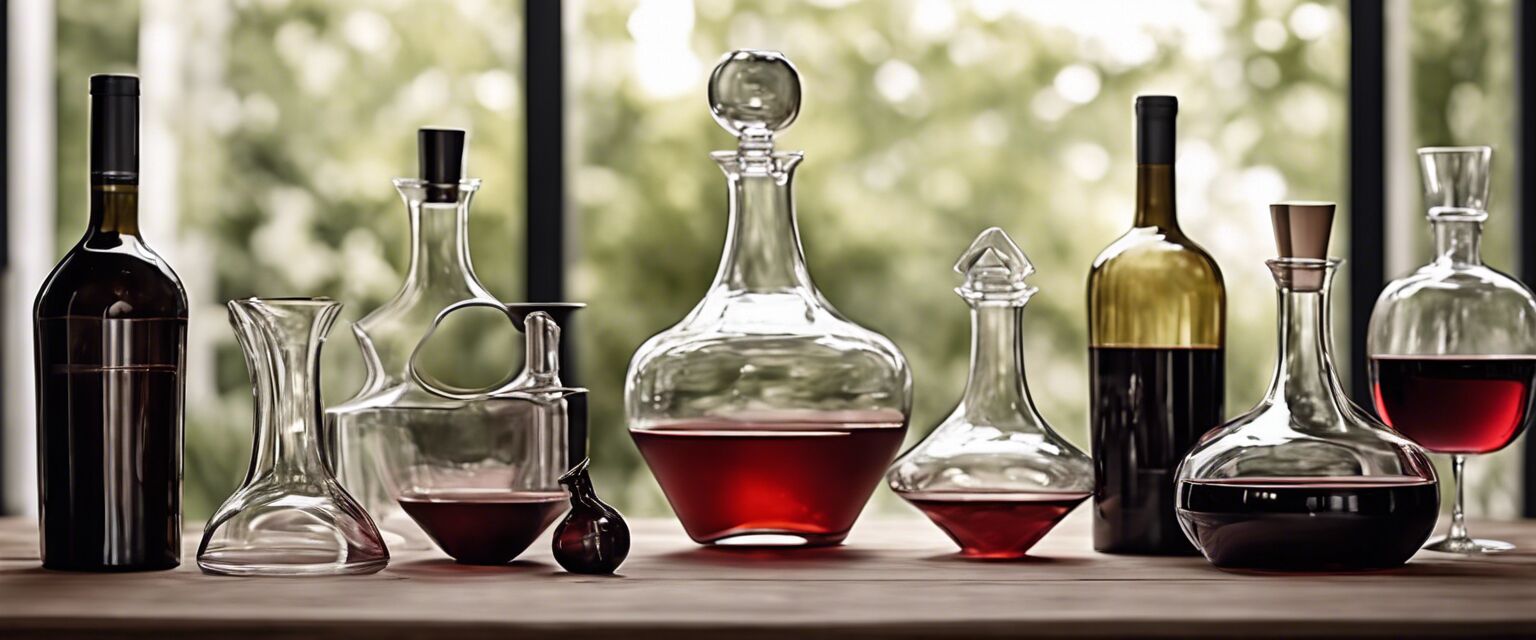
Conclusion
Wine decanters are a valuable addition to any wine lover's collection. They not only enhance the flavors and aromas of your favorite wines but also serve as beautiful pieces of decor. By understanding the different types of decanters and how to use them effectively, you can elevate your wine experience.
Pros
- Enhances wine flavors and aromas.
- Serves as an elegant presentation tool.
- Helps in sediment separation.
- Easy to use with a bit of practice.
Cons
- Can be fragile and break easily.
- Requires cleaning and maintenance.
- May not be necessary for all wines.
Related Resources
Explore more about wine and accessories on our site:

